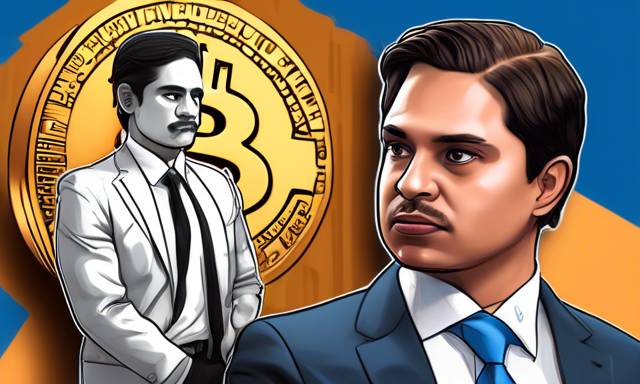Overview: The IMF’s Ongoing Influence on El Salvador’s Bitcoin Regulations 🌎
The International Monetary Fund (IMF) continues to focus on El Salvador’s approach to Bitcoin. This year, the IMF suggested that the nation should enhance its regulatory measures concerning the cryptocurrency. In a recent announcement, the IMF called for clearer regulations and increased oversight to better manage the risks associated with Bitcoin.
The IMF’s Call for Stronger Bitcoin Regulation 🔍
The IMF has once again expressed its concerns regarding El Salvador’s cryptocurrency policies. Recently, during a press briefing, Julie Kozack, the IMF’s communications director, remarked:
“We have advised to refine the Bitcoin legislation, enhance the regulatory framework, and closely supervise the Bitcoin ecosystem while minimizing the public sector’s exposure to Bitcoin.”
This highlights the IMF’s unwavering commitment to urge El Salvador to take steps that would mitigate the risks related to Bitcoin transactions while refining the existing legal framework surrounding the cryptocurrency.
Despite El Salvador’s designation of Bitcoin as legal tender back in 2021, which has led to a reported GDP growth rate of 3%, the IMF sees the necessity for a more regulated approach to cryptocurrencies.
IMF’s Renewed Focus on El Salvador’s Bitcoin Policies 📈
The IMF’s recent recommendations reflect a continuation of discussions initiated in a more understated manner last August. During that time, the IMF recognized advancements in negotiations with the Salvadoran government.
Specifically, the IMF commended efforts toward establishing a program aimed at bolstering public finances, enhancing bank reserves, and improving governance and transparency within the financial system.
While acknowledging the significance of Bitcoin, the IMF has urged El Salvador to prioritize transparency, thereby reducing fiscal and financial risk. This nuanced statement does not indicate complete acceptance of Bitcoin but does suggest a less aggressive stance from the IMF compared to previous communications.
Bukele’s Mixed Feelings on Bitcoin Adoption in El Salvador 💬
He expressed a desire for more citizens to embrace his Bitcoin strategy and highlighted the potential financial benefits that could have accrued to them since 2021. Yet, Bukele also conveyed satisfaction with his policy of not coercing anyone into adopting Bitcoin—ensuring that the decision to engage with the cryptocurrency remains a voluntary choice for the people of El Salvador.
The Future of Bitcoin in El Salvador: Challenges and Opportunities 🚀
As the IMF continues to advocate for stricter regulations, El Salvador stands at a crossroads where it must balance innovation with accountability. The growth of Bitcoin as a legal tender has created an array of possibilities; however, it comes with challenges that require careful consideration.
- Market Volatility: The inherent fluctuations in Bitcoin’s value can pose risks to the country’s economy.
- Public Awareness: Educating citizens on the benefits and risks associated with cryptocurrency can pave the way for better adoption.
- International Relations: El Salvador’s actions regarding Bitcoin could influence its standing with international financial bodies.
This year, El Salvador’s leadership under Bukele must navigate the recommendations from the IMF, while also staying responsive to the will of its citizens regarding cryptocurrency usage. Building a robust regulatory framework can help manage risks while enabling the innovative potential that Bitcoin presents.
In this evolving landscape, staying updated on both regulatory changes and the market dynamics surrounding Bitcoin will be crucial for anyone engaged in the cryptocurrency space in El Salvador.
Sources:
Reuters





 By
By
 By
By


 By
By
 By
By